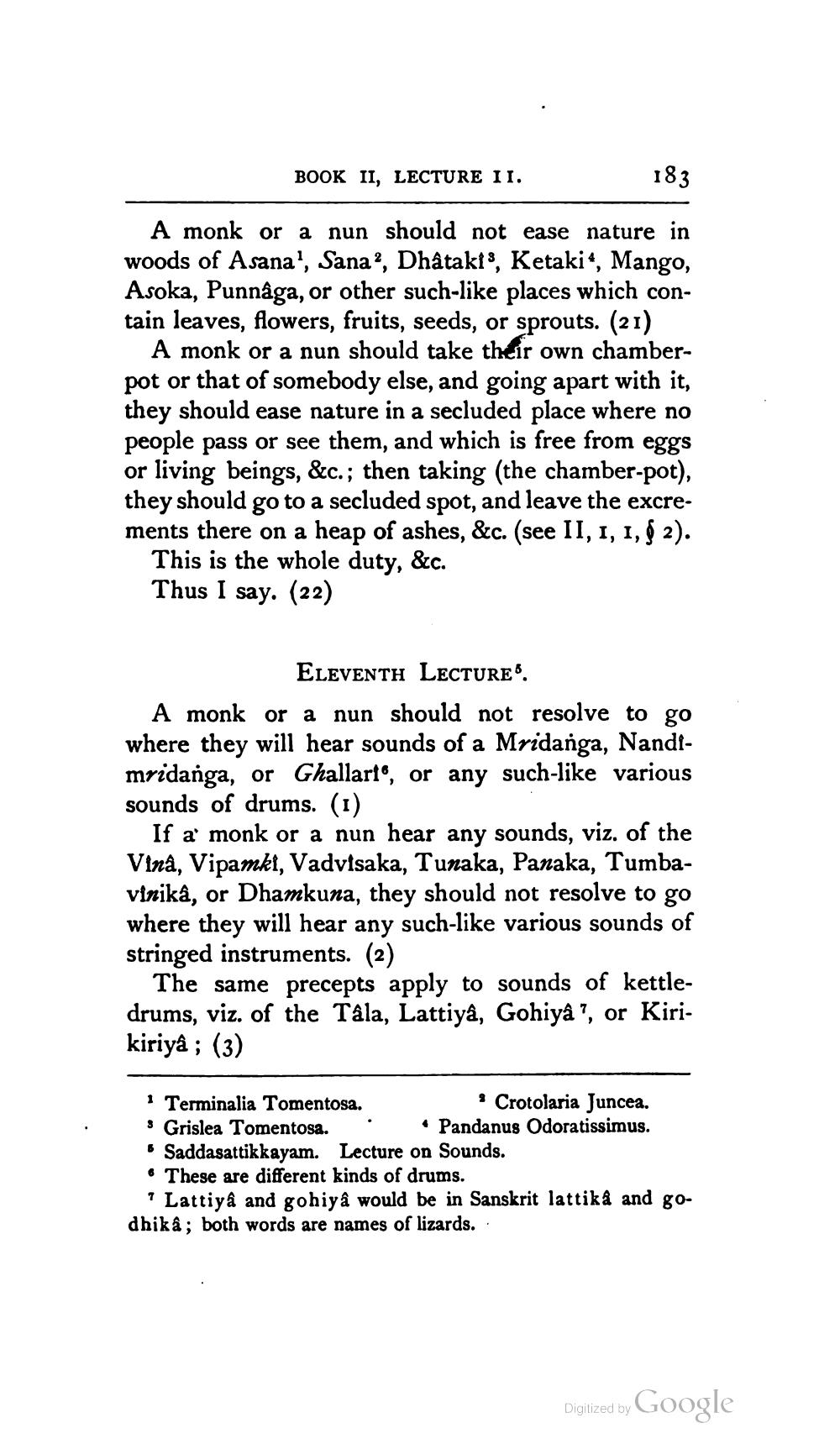________________
BOOK II, LECTURE 11.
183
A monk or a nun should not ease nature in woods of Asana', Sana, Dhâtakis, Ketaki“, Mango, Asoka, Punnaga, or other such-like places which contain leaves, flowers, fruits, seeds, or sprouts. (21)
A monk or a nun should take their own chamberpot or that of somebody else, and going apart with it, they should ease nature in a secluded place where no people pass or see them, and which is free from eggs or living beings, &c.; then taking (the chamber-pot), they should go to a secluded spot, and leave the excrements there on a heap of ashes, &c. (see II, 1, 1, $ 2).
This is the whole duty, &c. Thus I say. (22)
ELEVENTH LECTURE”. A monk or a nun should not resolve to go where they will hear sounds of a Mridanga, Nandtmridanga, or Ghallart, or any such-like various sounds of drums. (1)
If a monk or a nun hear any sounds, viz. of the Vina, Vipamki, Vadvisaka, Tunaka, Panaka, Tumbavinika, or Dhamkuna, they should not resolve to go where they will hear any such-like various sounds of stringed instruments. (2)
The same precepts apply to sounds of kettledrums, viz. of the Tåla, Lattiyâ, Gohiya?, or Kirikiriyâ; (3)
1 Terminalia Tomentosa.
• Crotolaria Juncea. 3 Grislea Tomentosa. . • Pandanus Odoratissimus.
Saddasattikkayam. Lecture on Sounds. . These are different kinds of drums.
? Lattiya and gohiyâ would be in Sanskrit lattikä and godhika; both words are names of lizards..
Digitized by Google




